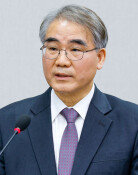Overlapping pledges must be priorities for bipartisan collaboration
Overlapping pledges must be priorities for bipartisan collaboration
Posted April. 19, 2024 07:46,
Updated April. 19, 2024 07:46
"Fundamentally, the voters’ livelihood must improve for the approval rating to reach double digits. The impact that the individual charisma of a candidate can have only fluctuates within plus or minus 5%, while that of the endorsement might barely hit single digits, and with well-crafted pledges, the range of impacts you can merely hover at decimal points."
When asked about the factors that could change the approval ratings during the election period, an official from the People Power Party gave such an answer at the beginning of this year. It was when both the People Power Party and the Democratic Party had just begun unraveling their packages of campaign pledges to address low birth rates. So, the answer certainly beat my expectations against the backdrop of the ruling party's leader donning the attire of a delivery man on the streets and making promises on tailored pledges, his answer that the pledges can only have such marginal impacts sounded almost deceptive.
After the April 10 general elections, a significant number of voters are paying attention to the direction of the promises that both the ruling and opposition parties scrambled to put forward. Since the opposition won by a landslide, questions arise immediately, such as whether the relaxation of regulations on apartment reconstruction and redevelopment is just wishful thinking, whether the 250,000 won per person living support proposed by Lee Jae-myung, the leader of the Democratic Party, is actually feasible, or if the establishment of subway stations in front of houses promised by candidates of the People Power Party will turn out to be mere rhetorics. Just by glancing at online comments and communities, it's evident that there's a storm brewing over that is much more massive in size than decimal points.
The promises mindlessly handed out by the ruling and opposition parties during the election period have traditionally turned out as useless as dispensable scraps of paper. Not to mention the losing party, even the winning party doesn’t necessarily have to fulfill them; as long as they can endure criticism. It is also absurd to expect the lawmakers to change overnight when the parliament has virtually idled for four years. The promise of “caregiving benefits" and "lunch at local community centers for more than five days a week," which showed up this time, had already had the related bills proposed two and four years ago, respectively, but they've remained dormant since. Including such bills, as of April 18, the total number of pending bills in the 21st National Assembly that has only six more plenums left stands at a whopping 16,351.
Promises that never see the light of day are just repackaged and recycled four years later. For instance, the Democratic Party's proposal for relocating the National Assembly to Sejong City in 2020 has been reborn in the People Power Party's "complete relocation" pledge for 2024. There are even pledges overlapping across the ruling and opposition parties, such as the "expansion and free provision of Neulbom Schools" (People Power Party) - "introduction of elementary childcare centers in every neighborhood" (Democratic Party), and the expansion of childcare leave benefits, which target the 30-40 age group. Other examples include the railway underground project drummed up with the Seoul-Busan and Seoul-Incheon Lines by the People Power Party and the Great Train eXpress (GTX) by the Democratic Party. In the field of advanced industry support, there are initiatives like infrastructure support for the semiconductor industry (People Power Party) and - the construction of a semiconductor ecosystem hub (Democratic Party). Those are the rare cases where bipartisan frequencies match, hence the tasks that simply need to be done through collaboration.
Rather than just playing tug-of-war over the special prosecutor's law, both parties must sit down together and find the common denominator first from the May session. They must handle the bills that have been put off first, especially those pledges that both parties made during the elections. With the opposition party holding the majority of seats, the pattern must not be repeated where the opposition urges immediate cooperation from the ruling party or the ruling party laments the opposition's recklessness because it only worsens public fatigue. If voters experience a sense of efficacy that their lives have improved through good pledges, it might change the long-standing skepticism that "only minor changes can be expected from promises alone." This journalist envisions general elections in four years where the parties present their pledge performance for voters’ evaluation. Promises are only meaningful when they are kept.







